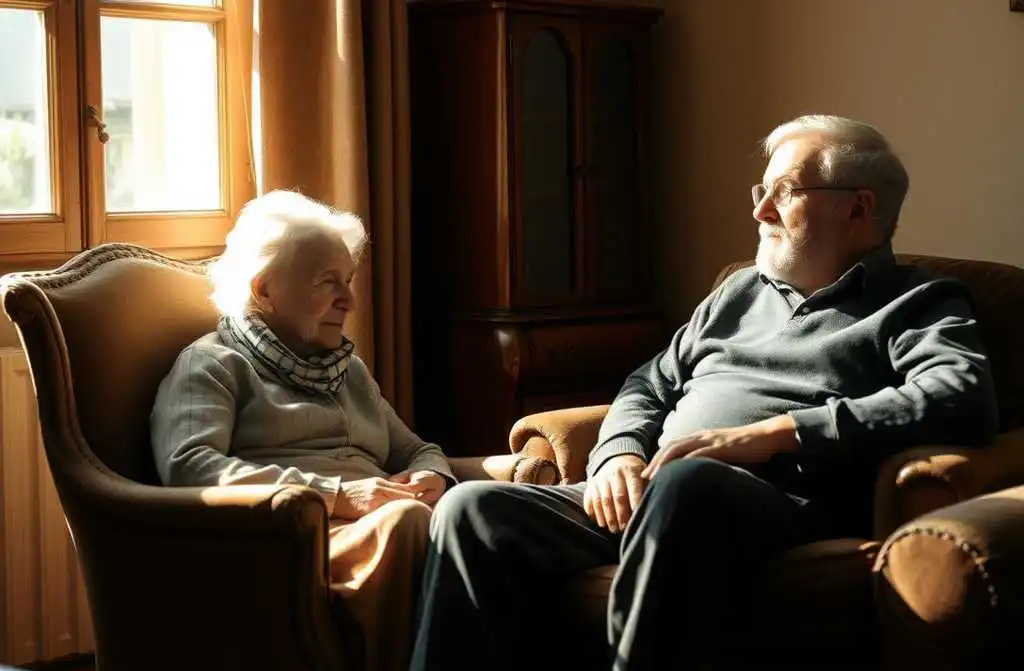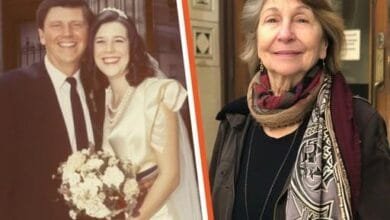My Grandmother’s Silence: I Discovered Why She Distanced Herself from the Family—and I Understood.

My name is Diego, I’m thirty-two years old, I live in Toledo, and recently I came to understand something that completely changed how I perceive the meaning of “family.” All my life, I felt there was something strange in our family that no one talked about: my grandmother Carmen, who recently turned eighty, has lived in complete isolation for the past twenty years.
Carmen doesn’t call her children, doesn’t attend family gatherings, and doesn’t respond to greetings. Her phone contains only two contacts: her general practitioner and the neighbor who occasionally buys her groceries. My mother, my aunt, and I always assumed there had been some kind of conflict between her and the rest of the family—maybe an argument or a long-standing grudge. But one day I decided to visit her, bring her some medicine, and talk. That was when she revealed the truth to me—and left me speechless.

—“Do you think I hate them?” she asked, looking me straight in the eyes. —“No. I just don’t want to keep living a life shared with them. I’m too tired.”
At that moment, she began to talk. At first in a low voice, slowly, as if trying to recall what she had kept inside for so long. Then, with more confidence, with a firmness I had never heard from her before.
—“Over time, Diego, everything changes. In your twenties, you want to argue, fight, prove things. In your forties, you want to build, protect, maintain. But when you reach eighty… all you want is silence. For no one to bother you. No questions, no reproaches, no noise from others. Suddenly, you realize there’s little time left—very little. And you want to spend it in peace, your own way.”
She told me that after my grandfather died, she began to feel like no one listened to her. Her children didn’t visit for her—they came out of obligation. Her grandchildren came only when told to. At the table, people talked about everything: politics, money, scandals, illness. But no one asked her how she felt, what interested her, or what went through her mind during those nights when she woke up in the dark.
—“I wasn’t alone. I just got tired of being a secondary character in my own life. I stopped craving empty gatherings. I wanted something meaningful, warm, respectful. But what I received was indifference, criticism, and endless conversations about things that didn’t matter.”
She explained that older people perceive connection differently. They don’t need loud toasts, exaggerated congratulations, or constant conversations about other people’s problems. What they need is a calm presence. Someone who sits beside them in silence, who gives a hug, who makes them feel seen.
—“I stopped answering calls when I realized they weren’t calling because they missed me, but because ‘it was the right thing to do.’ What’s so wrong about stepping away from insincerity?”
I remained silent. Then I asked her:
—“Aren’t you afraid of being alone?”
—“I haven’t been alone for a long time,” my grandmother laughed. —“I’m with myself. And that’s enough. If someone comes with good intentions, I’ll open the door. But for empty words? No. Old age isn’t about fearing loneliness. It’s about dignity. About the right to choose peace.”
Since then, I’ve started to see her differently—and myself, too. Because one day, we’ll all grow old. And if we don’t learn to listen, to pay attention, and to respect another person’s silence, who will listen to us when our time comes?
My grandmother isn’t cruel. She isn’t bitter. She’s simply wise. Her choice is that of someone who no longer wants to waste time on what doesn’t matter.
Psychologists say that old age is a stage of preparation for farewell. It’s not depression, nor stubbornness, nor rejection. It’s a way of preserving oneself. To not dissolve into the noise of others. To depart toward a place where, finally, there is peace.
And you know what? I realized she’s right.
I didn’t try to convince her to “fix the relationships.” I didn’t say that “family is sacred.” Because what is sacred, above all, is respect. And if you can’t respect another person’s silence, don’t call yourself family.
Now, I try to be near her not out of obligation, but from the heart. I simply sit beside her. Sometimes I read out loud. Sometimes we drink tea in silence. No grand phrases. No sermons. And I feel her eyes soften.
That silence is worth more than all the words. And I’m grateful I listened to her that day. I hope I’ll be able to listen to others when I reach her age.





